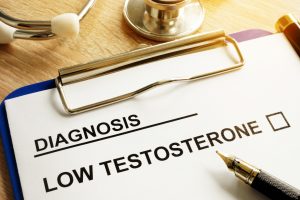
Some men age better than others. They seem to have more energy and look and feel younger than what you might consider “normal” for your (their) age. Part of the answer could have something to do with their testosterone levels.
Testosterone is the primary male sex hormone that can play a significant role in aging. It’s is central to libido, muscle mass, energy, bone density, and how you feel physically and mentally.
It naturally decreases with age, and there is a broad spectrum of what’s considered “normal,” making how you respond to drops in this hormone relative. Those with higher “normal” testosterone levels may react more intensely to a slight drop than those with lower levels.
In any event, it’s effects can be felt and tend to show up with age.
Testosterone levels decline naturally with age. It’s virtually unavoidable. But age and genetics aren’t the only factors playing a role in testosterone. So, the reason your friend or colleagues might seem younger and more energized than you could be lifestyle-related.
Activity levels, diet, muscle mass, and more can influence testosterone. Physical fitness and resistance exercise can improve testosterone, while a sedentary lifestyle and fat gain can promote lower testosterone.
A series of health conditions or treatments can also lead to potential testosterone reductions. A selection includes:
- Chemotherapy
- Metabolic disorders
- Uncontrolled type-2 diabetes
- Alcohol abuse
- Long- or short-term illness
- Cirrhosis
- Autoimmune disease
- Obesity
- Extreme low weight
- Sleep apnea
- Previous steroid use
- Excess estrogen (usually from the environment or another external source)
If you’re wondering why you’re not feeling as good as could be, it may have something to do with testosterone. Try improving your diet, including more exercise into your lifestyle, or talking to your doctor about other options.